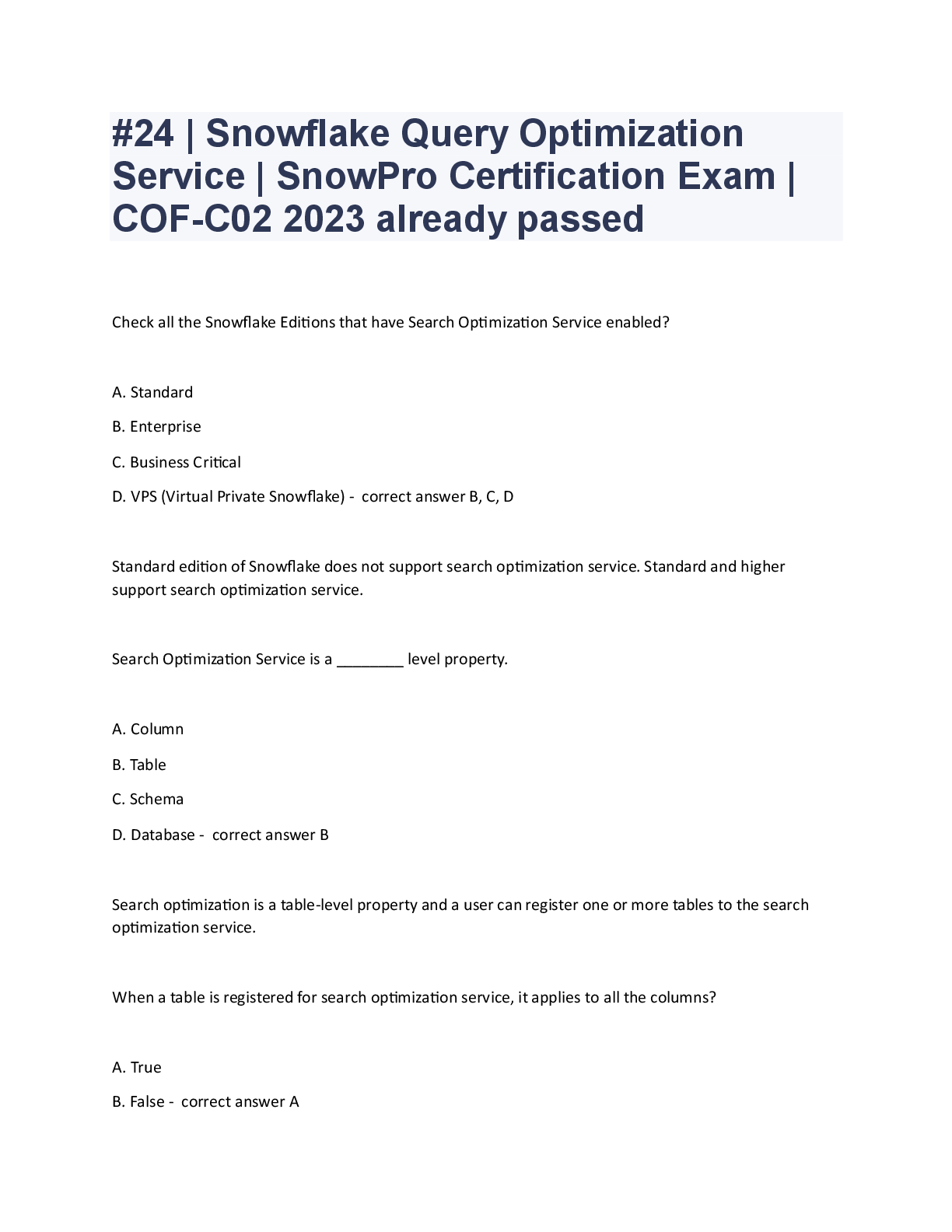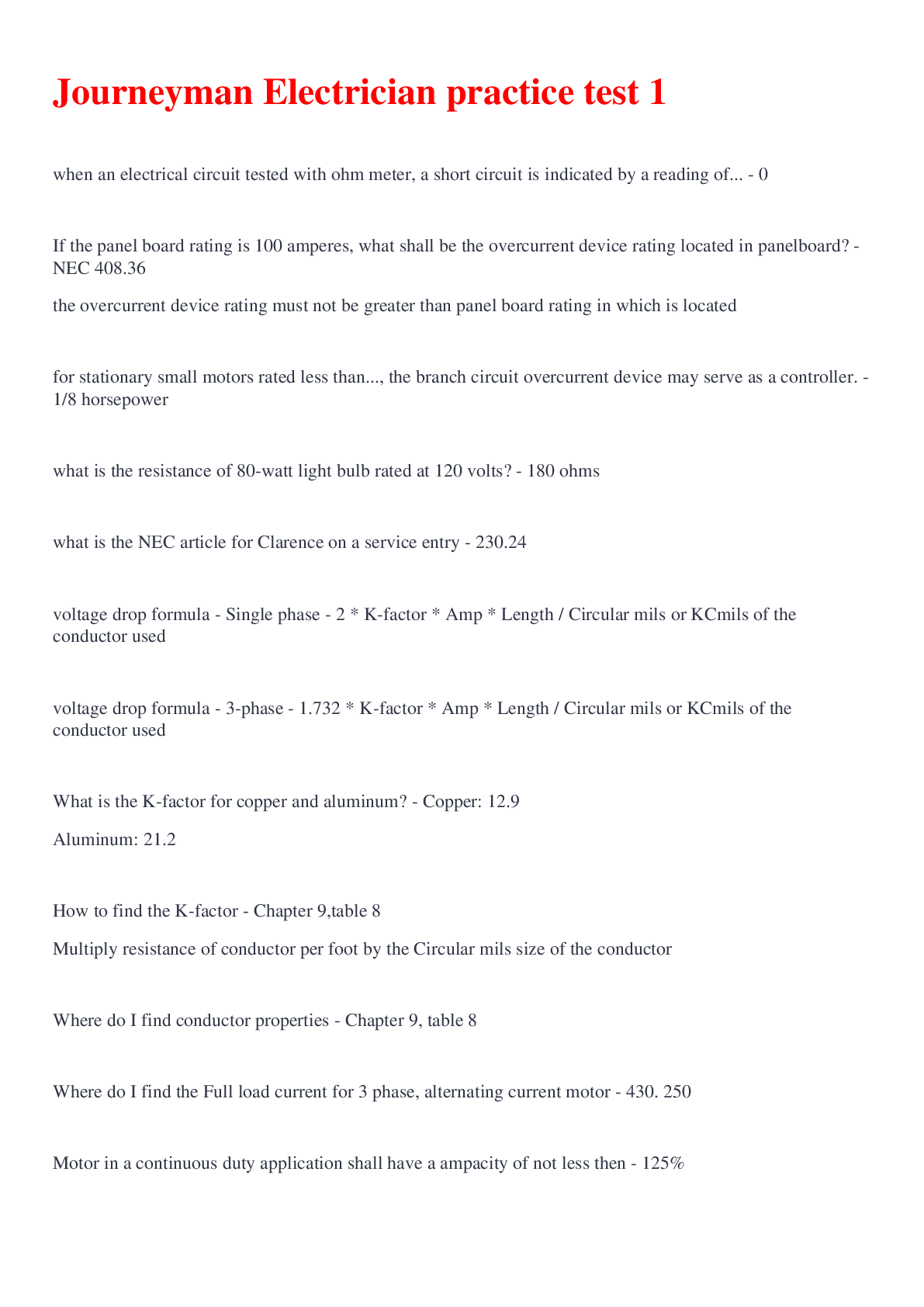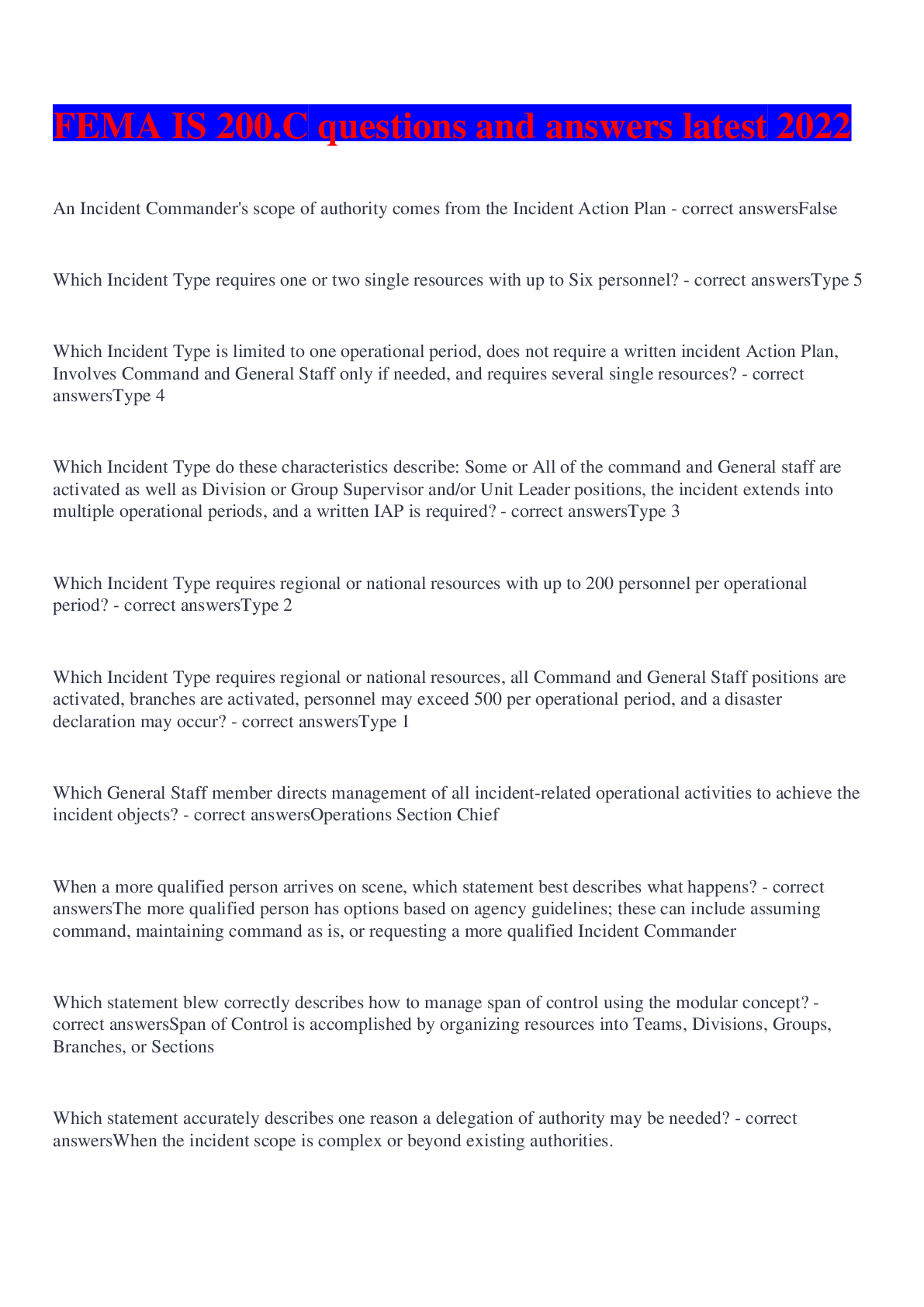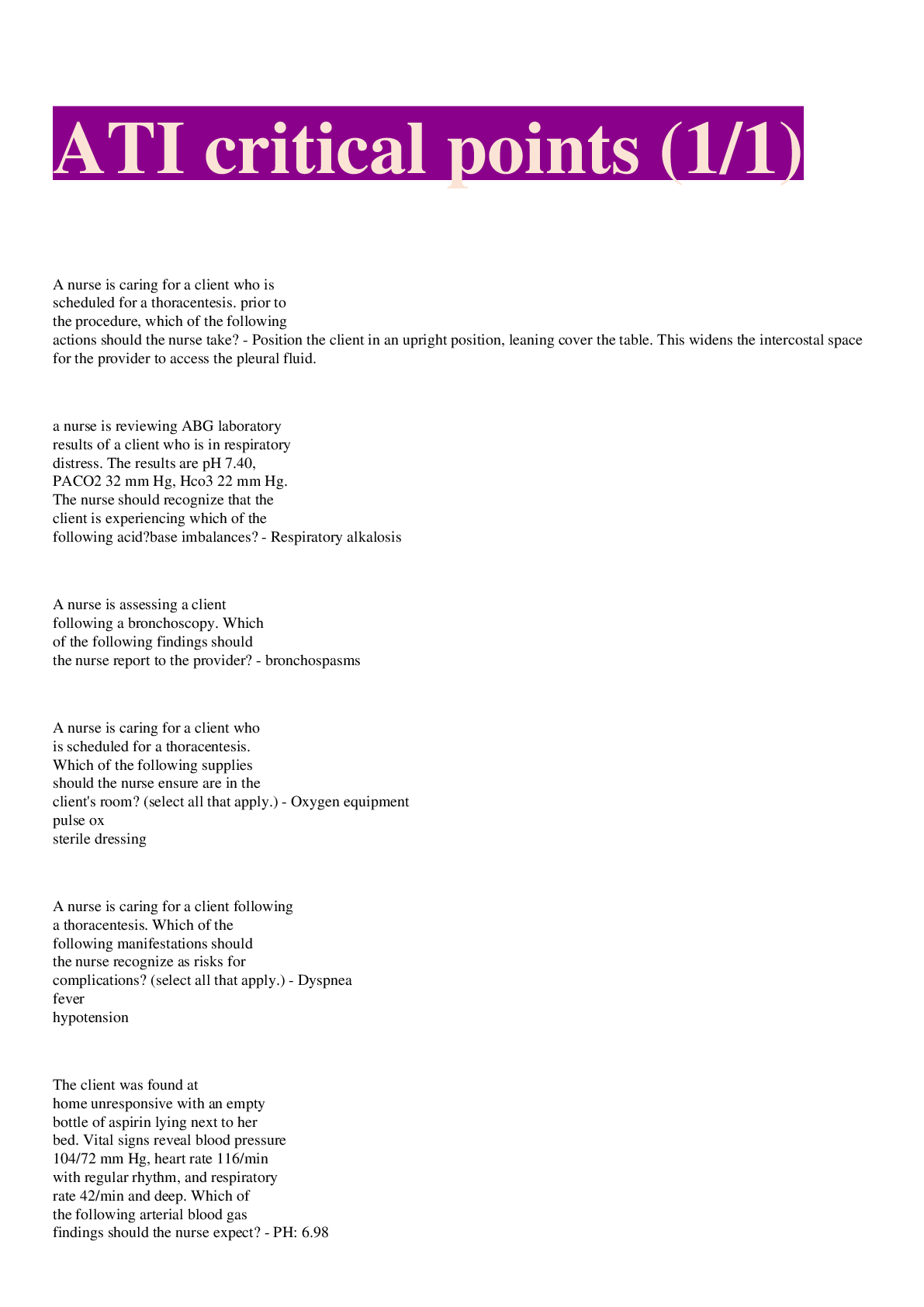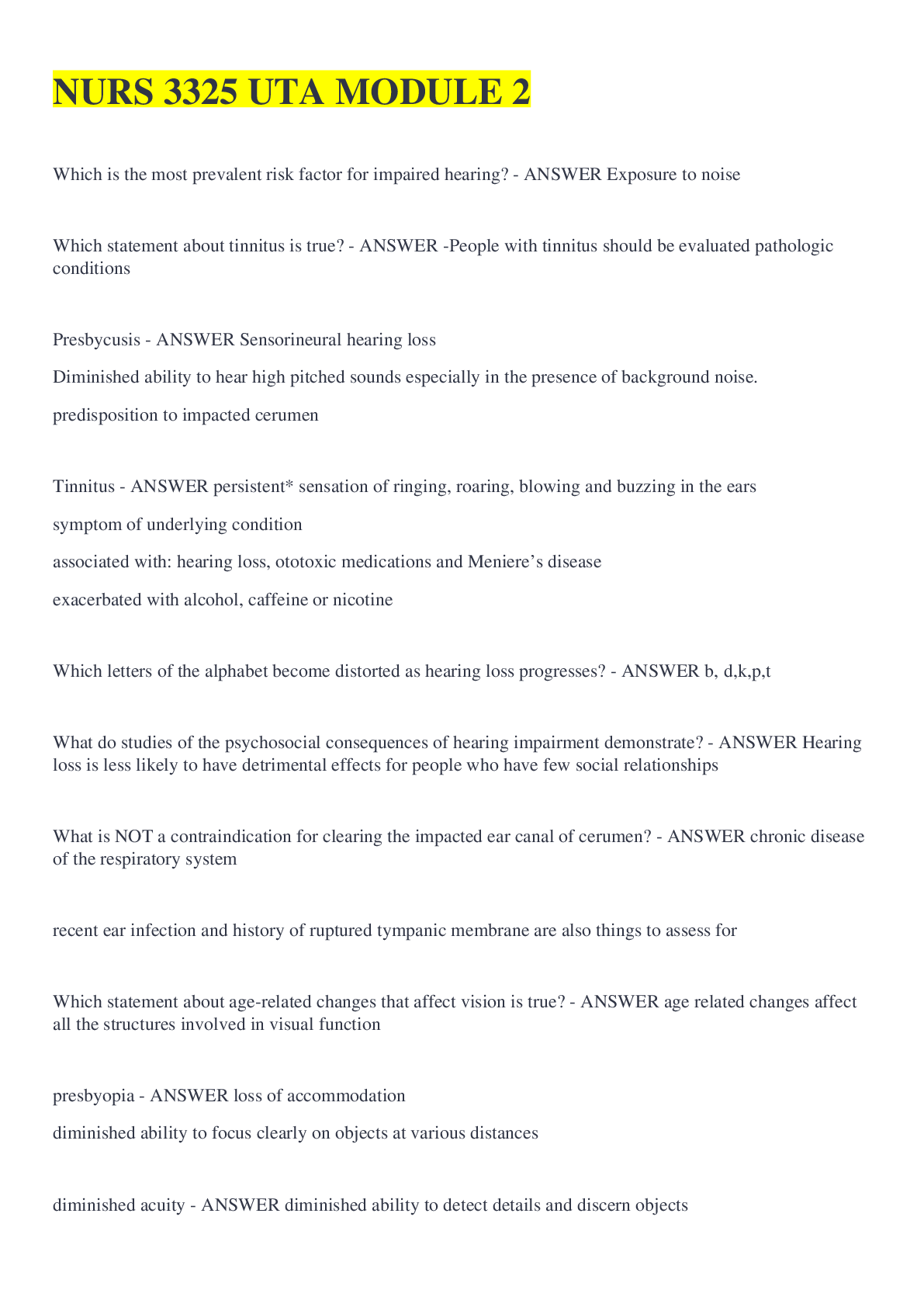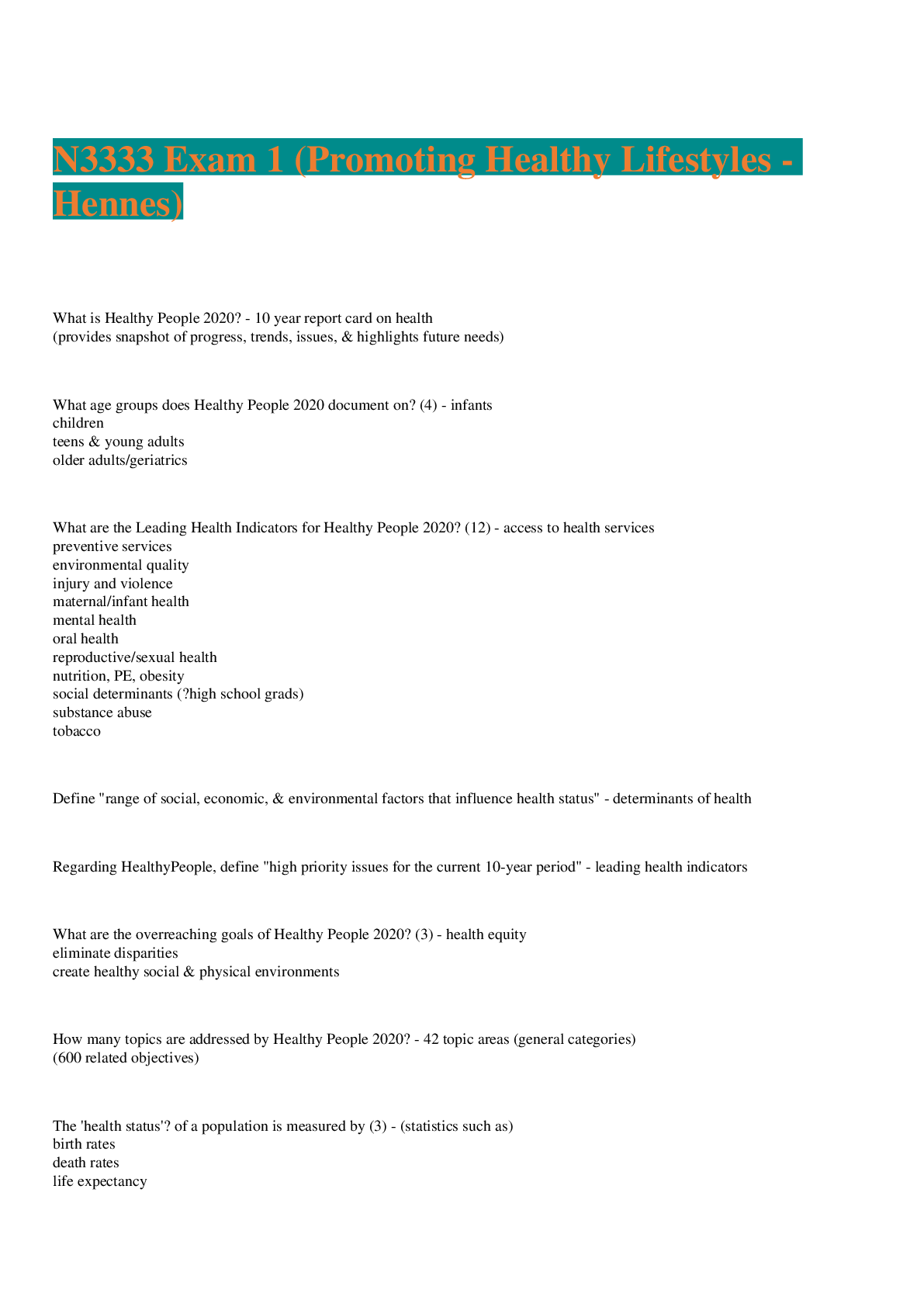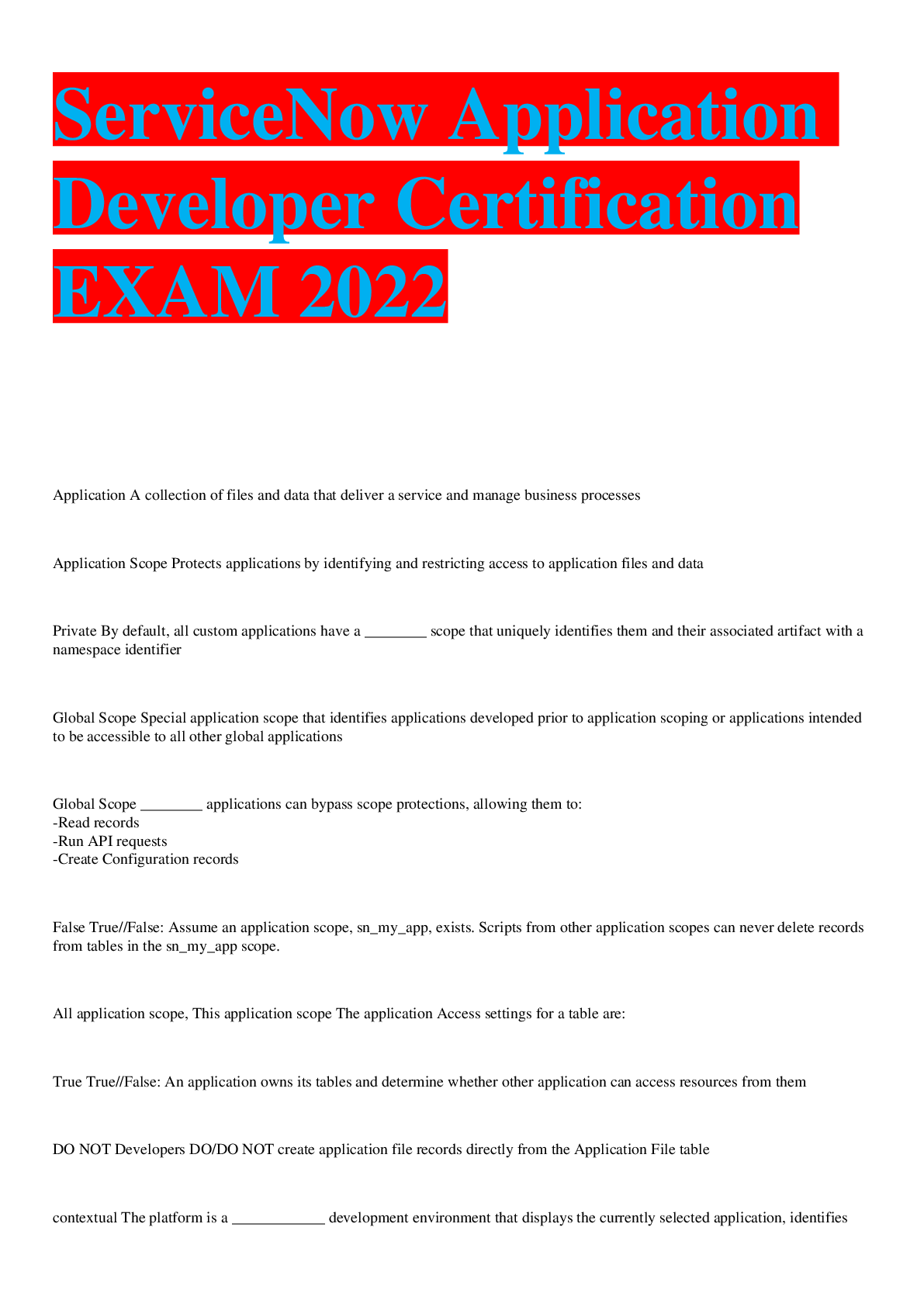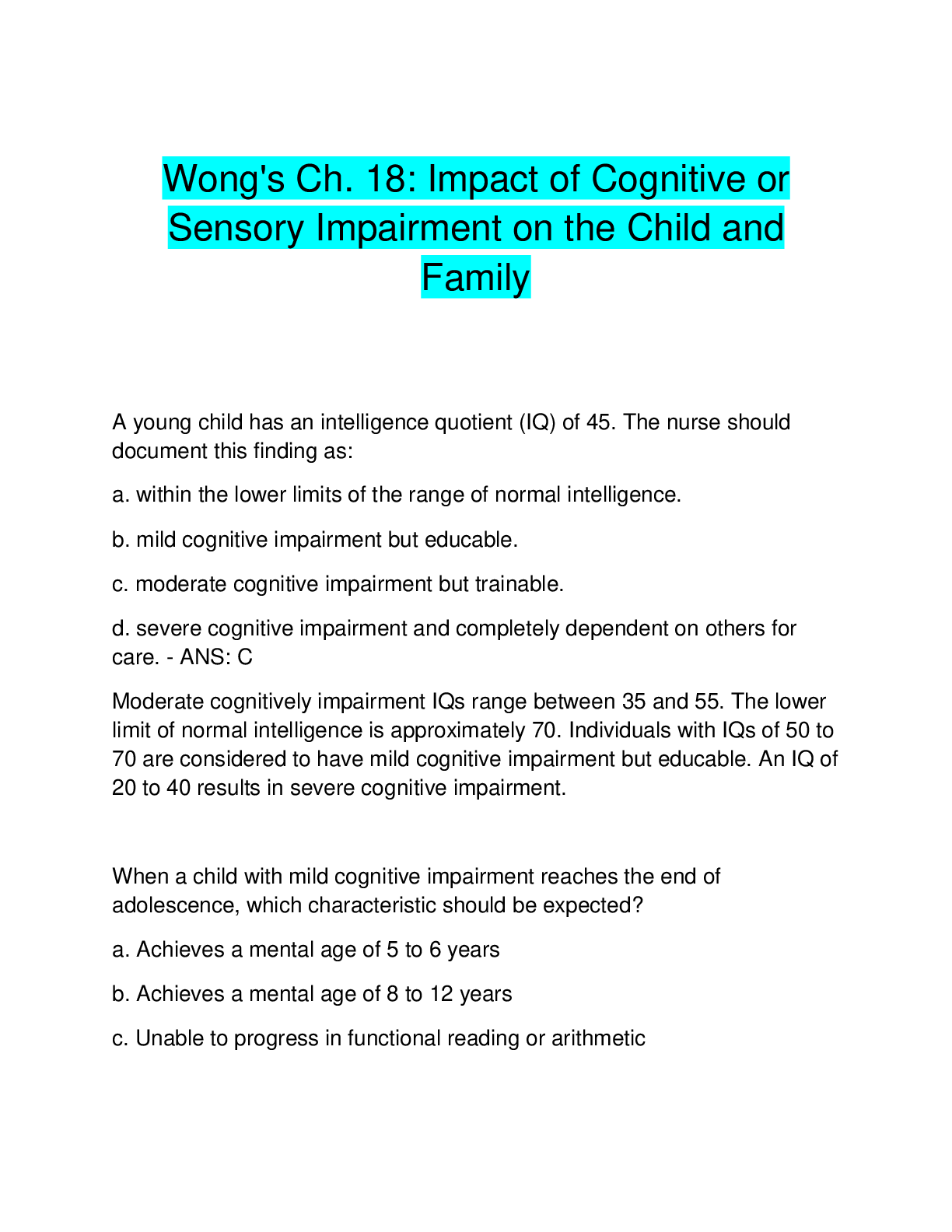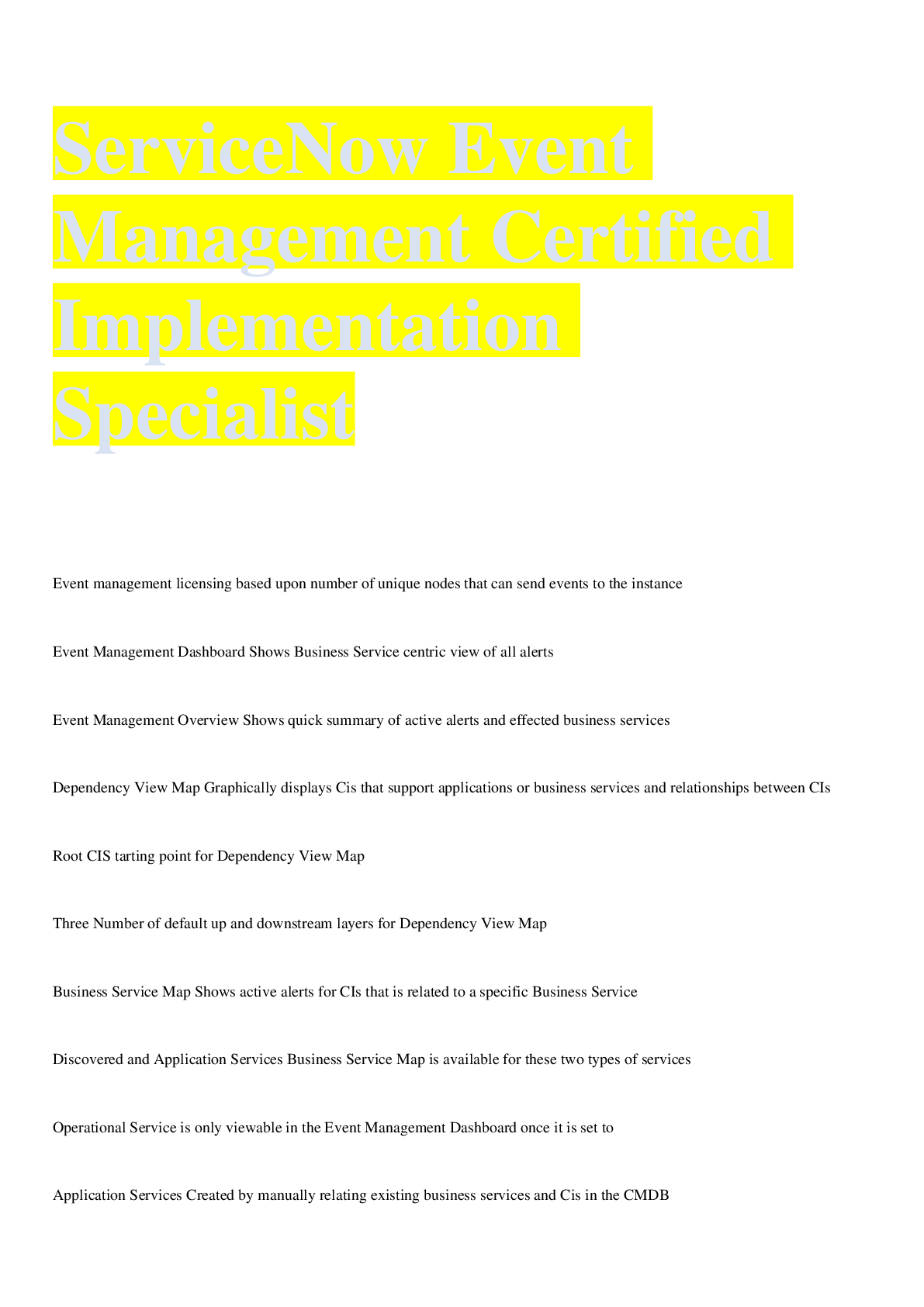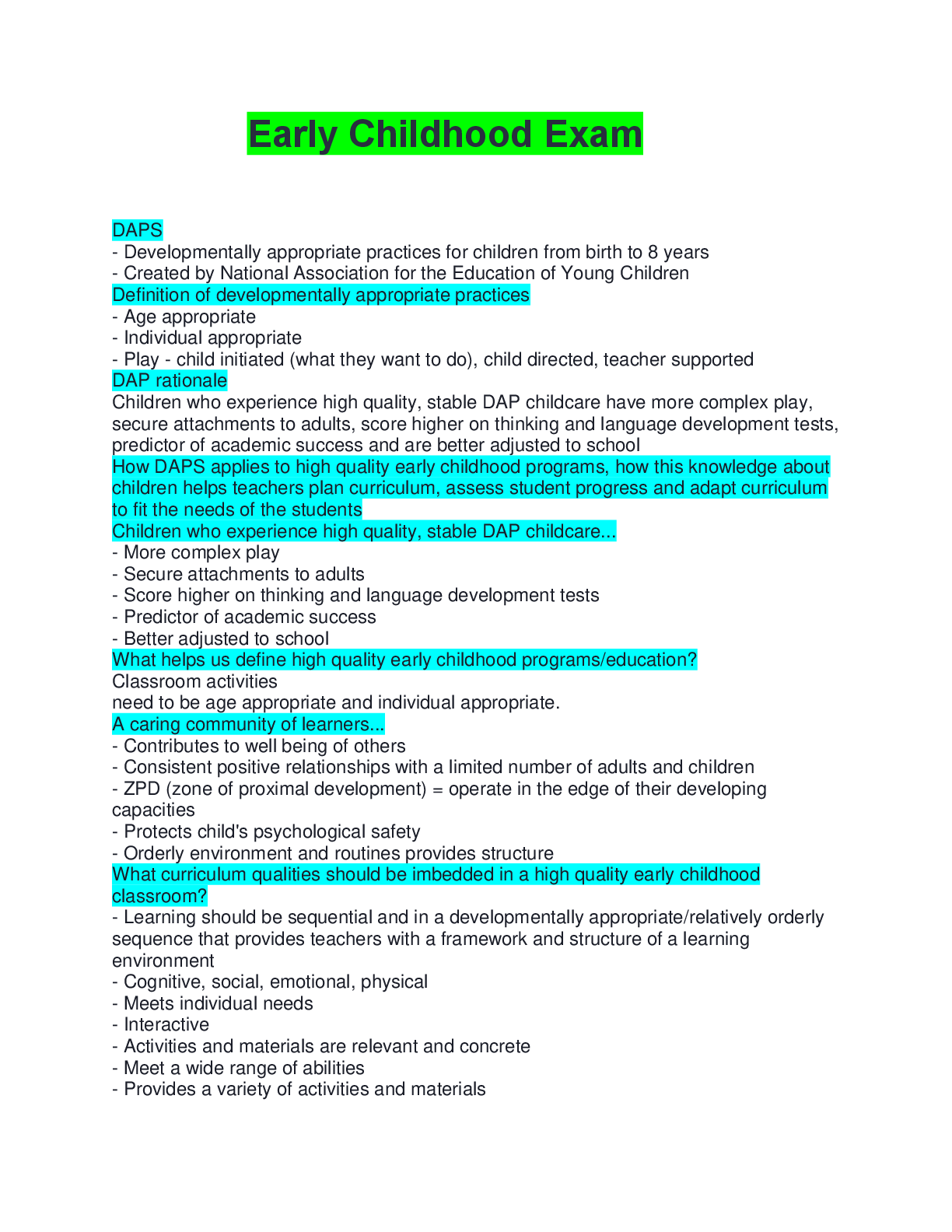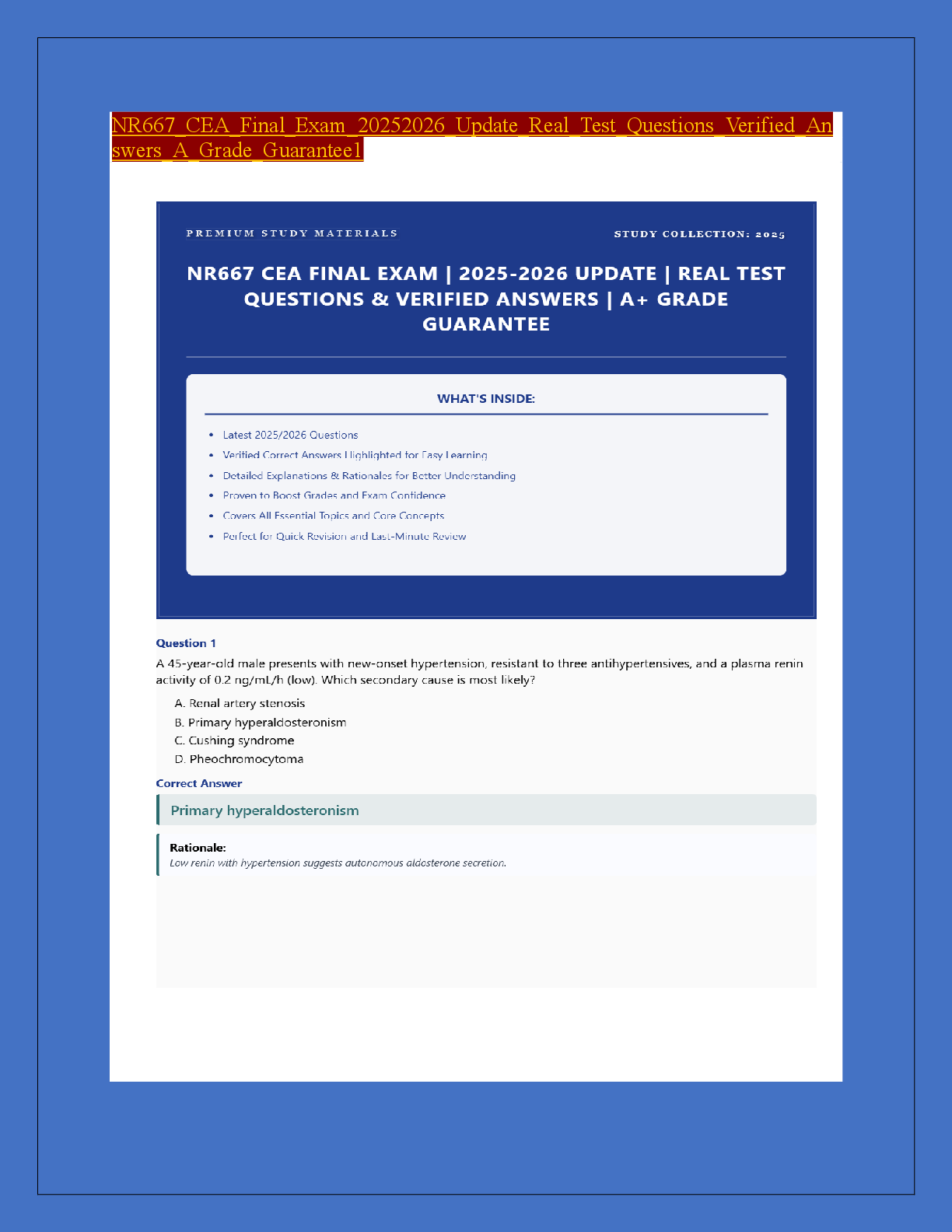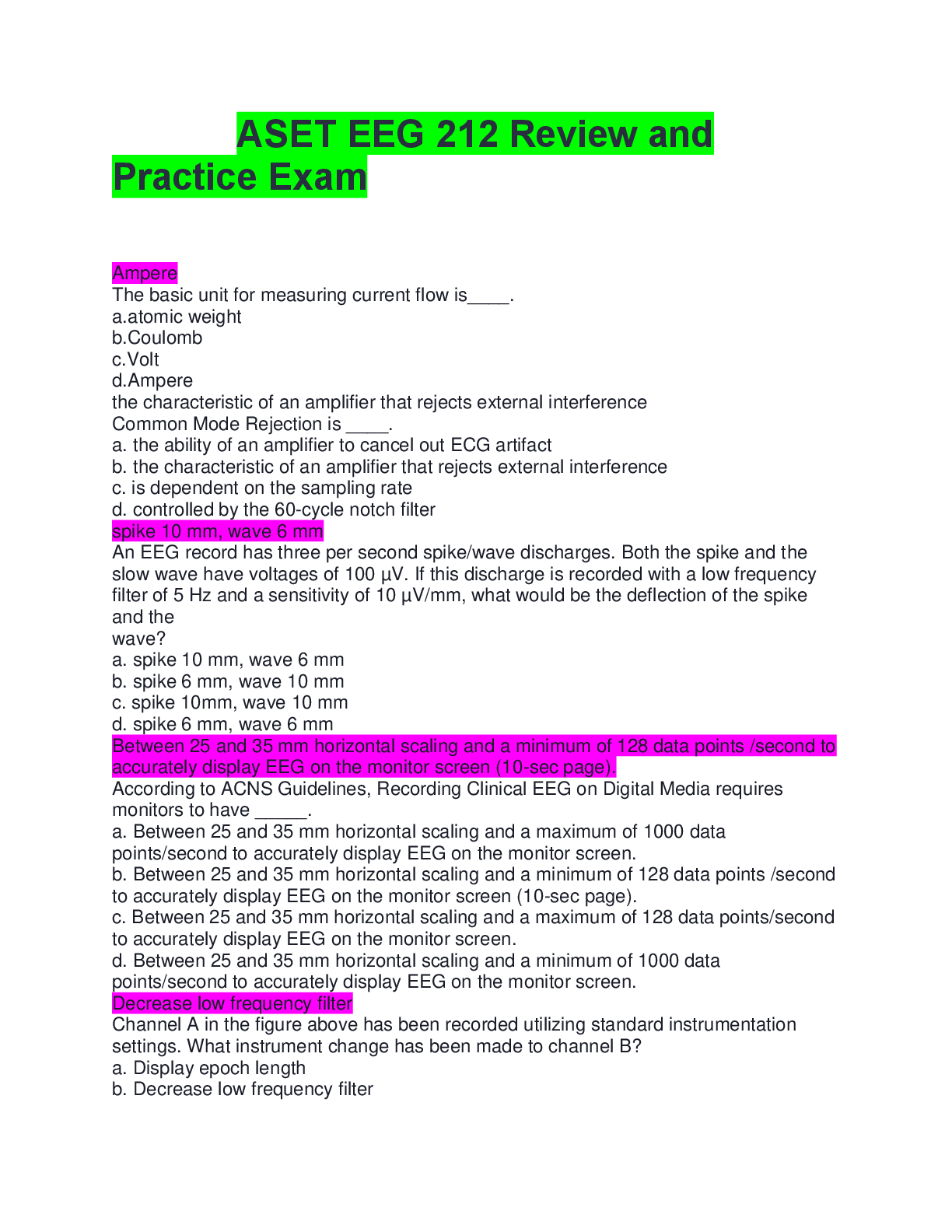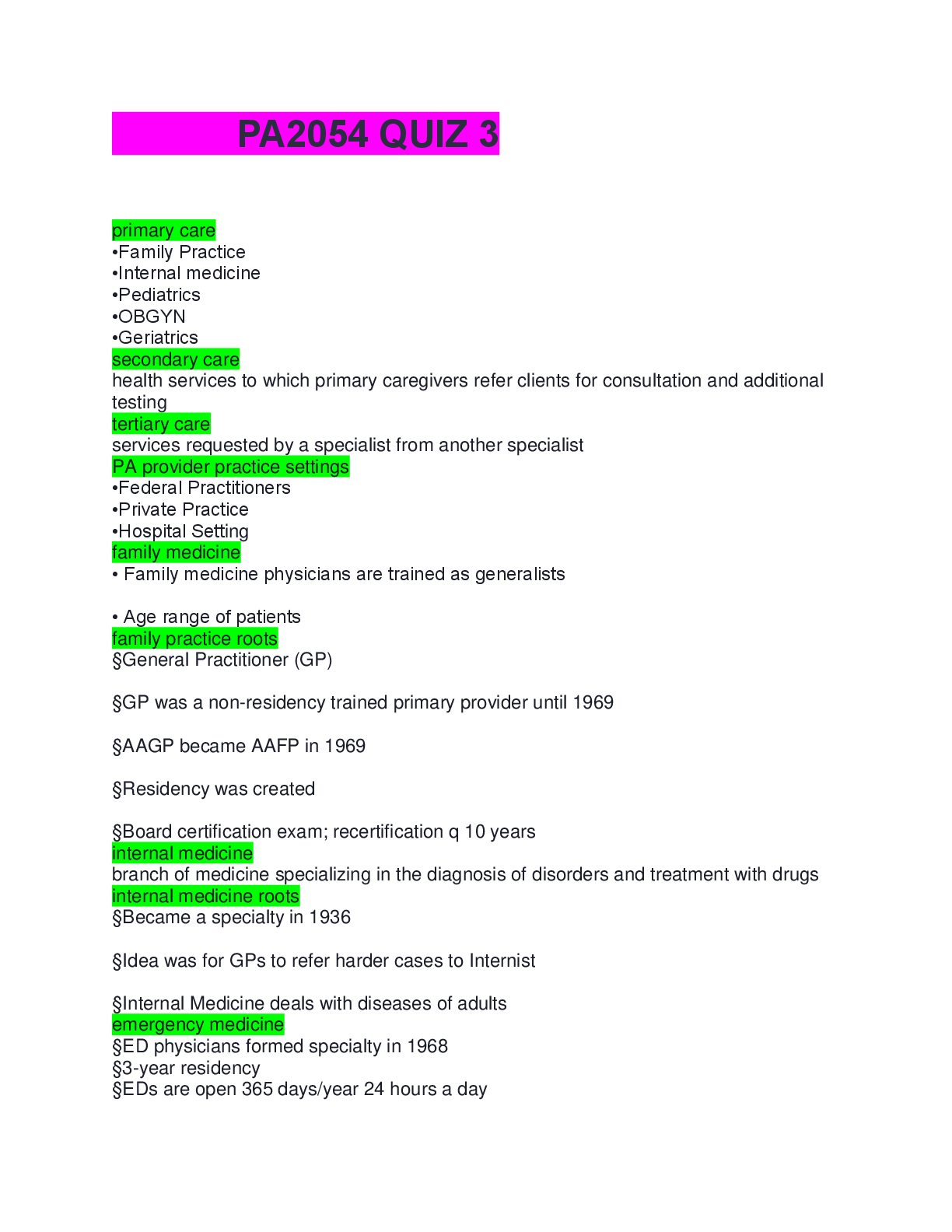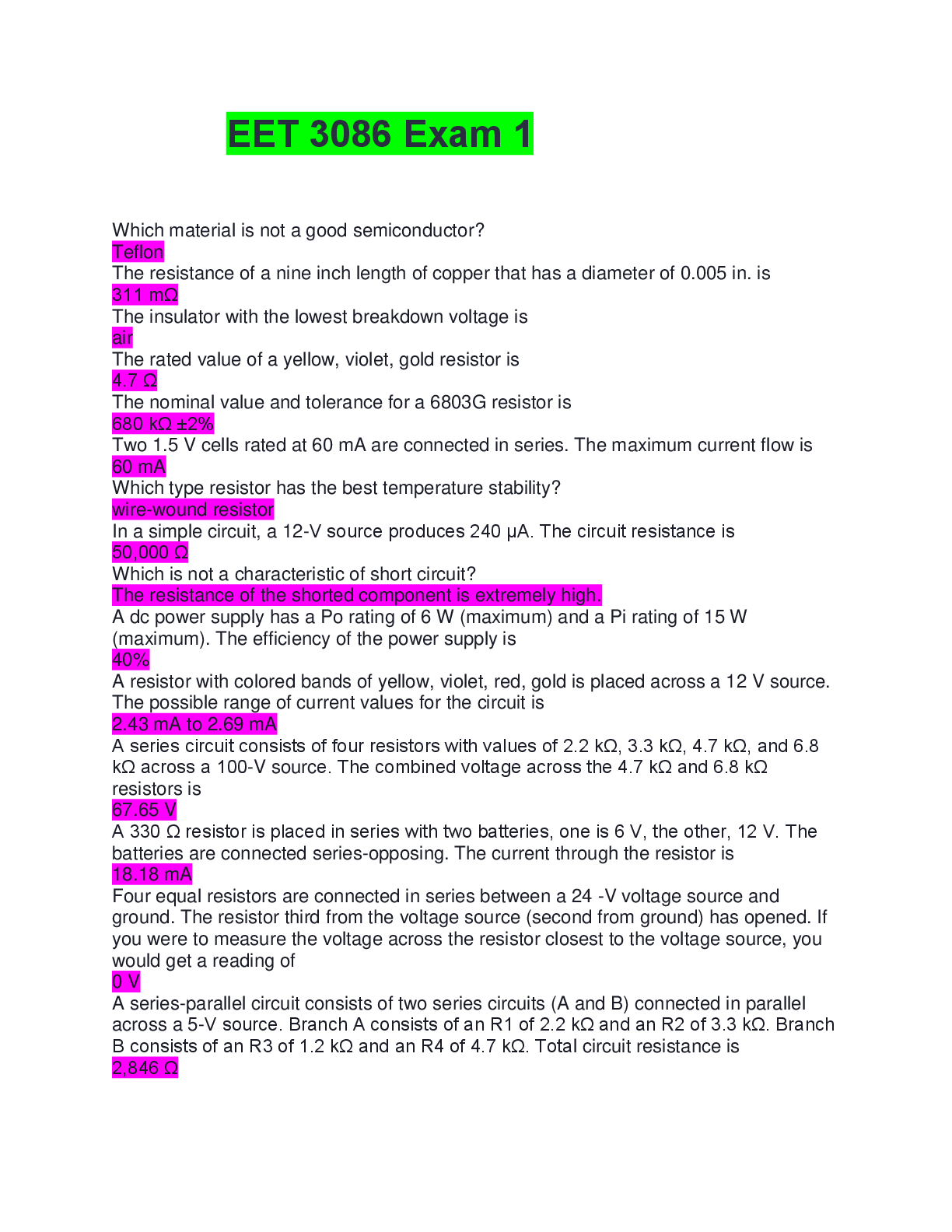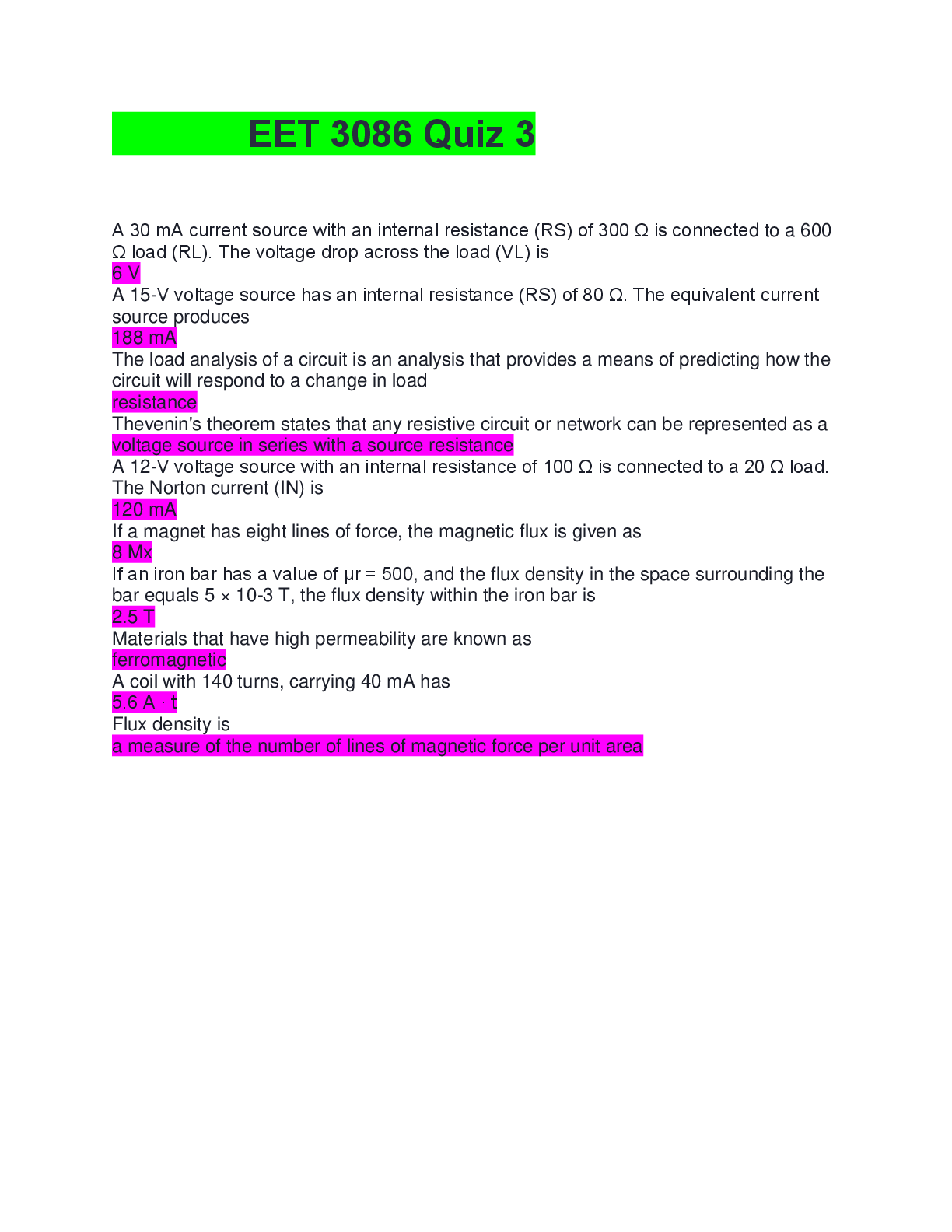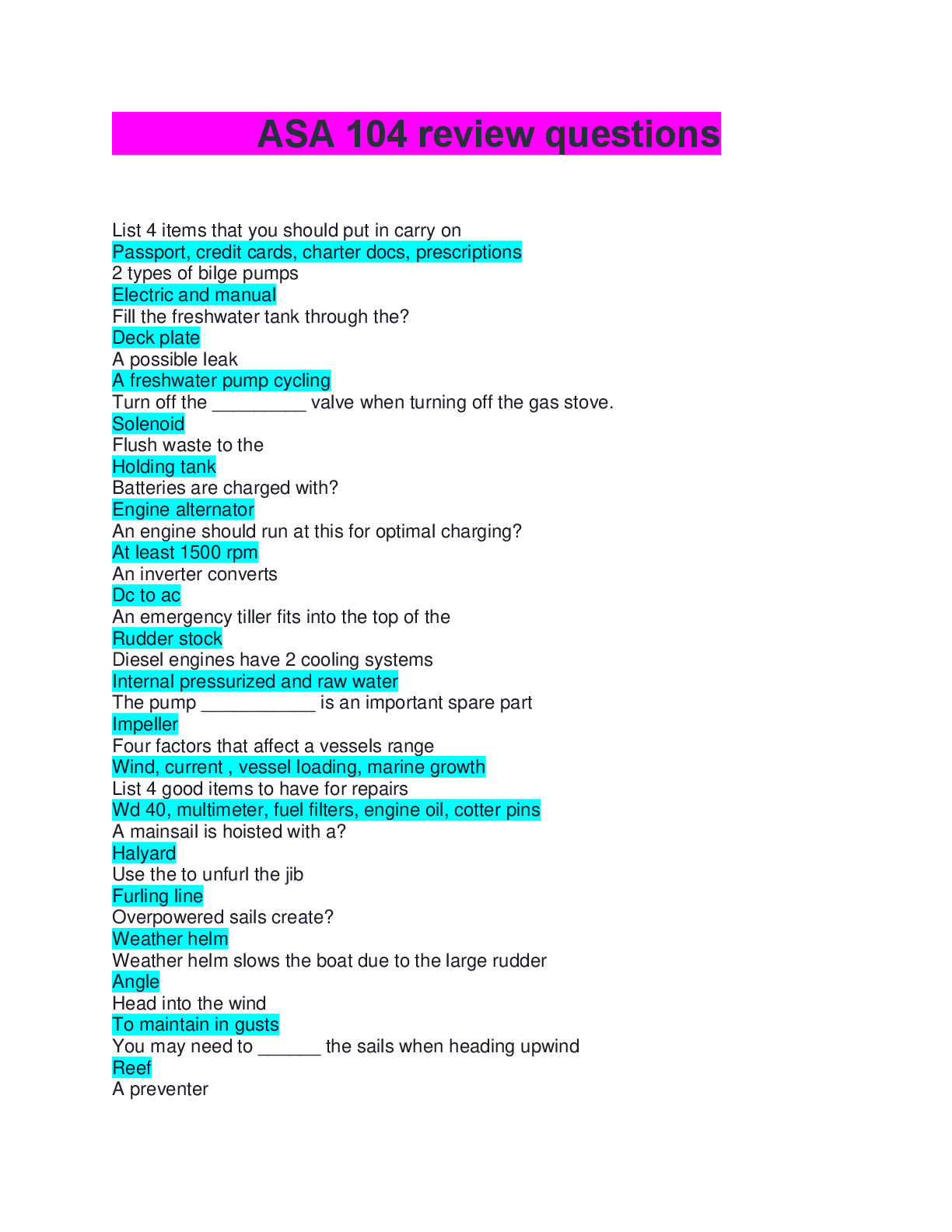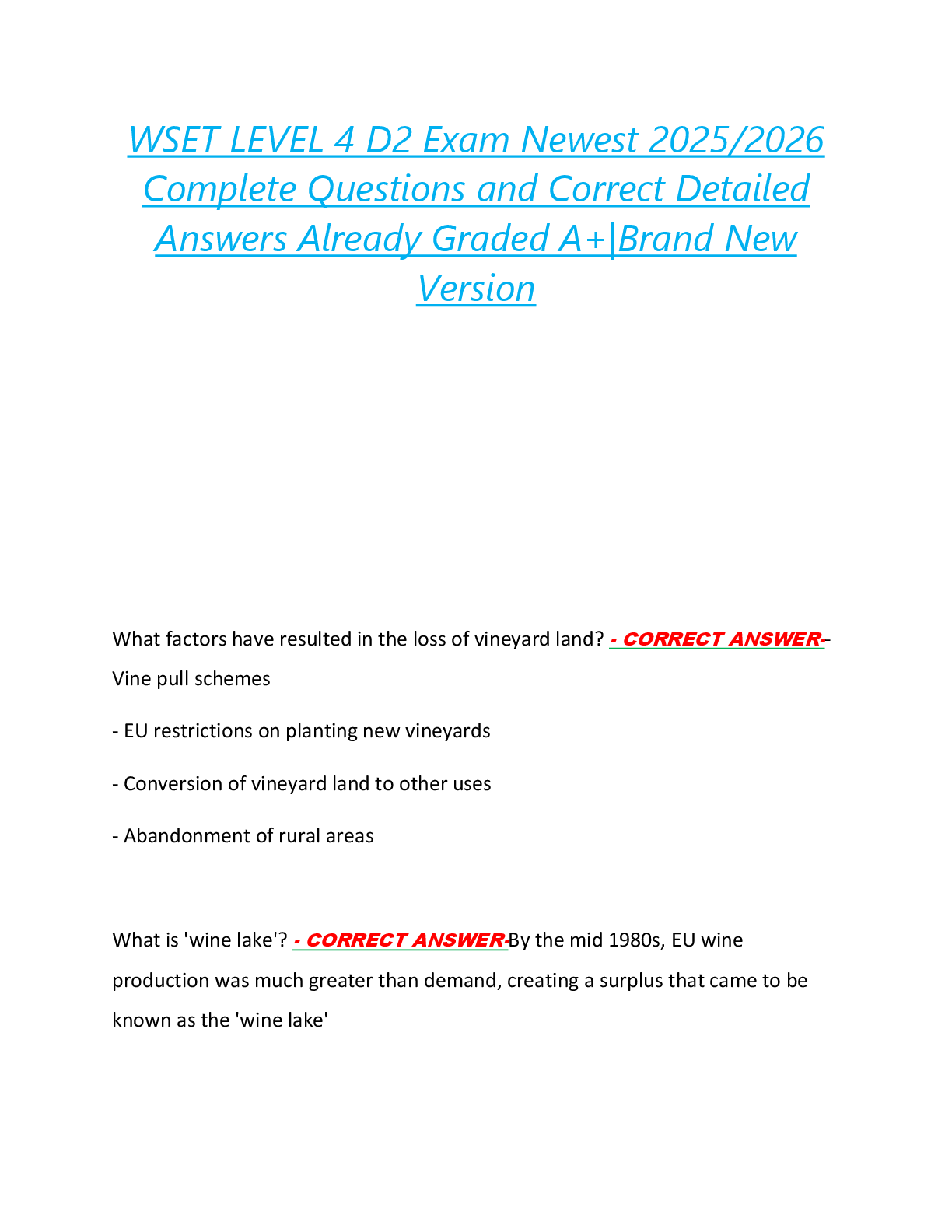Philosophy > EXAM > PHI208 Chapter 2 QUESTIONS AND ANSWERS 2022/2023 (All)
PHI208 Chapter 2 QUESTIONS AND ANSWERS 2022/2023
Document Content and Description Below
Skepticism a doubt that a belief or claim is true. Moral skeptic doubts common beliefs about morality itself. Two commonly assumed standards of morality 1. Moral standards are objective. 2. M ... oral standards are conditional. Emotivism the theory that we use moral expressions such as wrong or right to express our attitudes and feelings about certain actions, rather than to convey a belief about the way things really are. Error Theory the claim that people are systematically in error about moral values being real. Moral Intuitions the deep-down sense that we have about some things being good or right and some things being wrong or bad. Moral Objectivity belief that at least some moral truths are independent of the beliefs and values of any culture or individual. Relativism Rejects moral objectivity. Holds that the truth of the moral standards depends entirely on the beliefs and values that a culture or individual subject happens to hold. Meaning that if a culture or individual believes that or values certain ideas, the associated moral judgements are relatively true (i.e., true for them); if they lack those beliefs or values then the associated moral judgements are relatively false (i.e., false for them). Cultural Relativism denies that there are any judgments of right or wrong that extend across all cultures regardless of whether those beliefs, customs, or values support those judgments Subjectivism the view that matters of right or wrong are ultimately relative to the values that each individual subject recognizes and affirms. Egoism the assumption that everyone is or ought to be primarily concerned with his or her own interests. Egoist view everyone is ultimately self-centered, which implies that no one is truly just, there are no truly selfless actions, and we only have reason to respect justice and morality or care about the needs of others when it benefits us. Moral Intuitions the deep-down sense we have of something being good or right and another thing being bad or wrong. questions at the heart of the egoist do we only have reason to be moral if doing so benefits us, and would we be better off acting immorally if doing so had greater self-benefit? Glaukon's claims 1. No one is willingly just. 2. Justice is a social convention that benefits the weak.3. The best sort of life is that of the unjust person who seems just. [Show More]
Last updated: 3 years ago
Preview 1 out of 2 pages
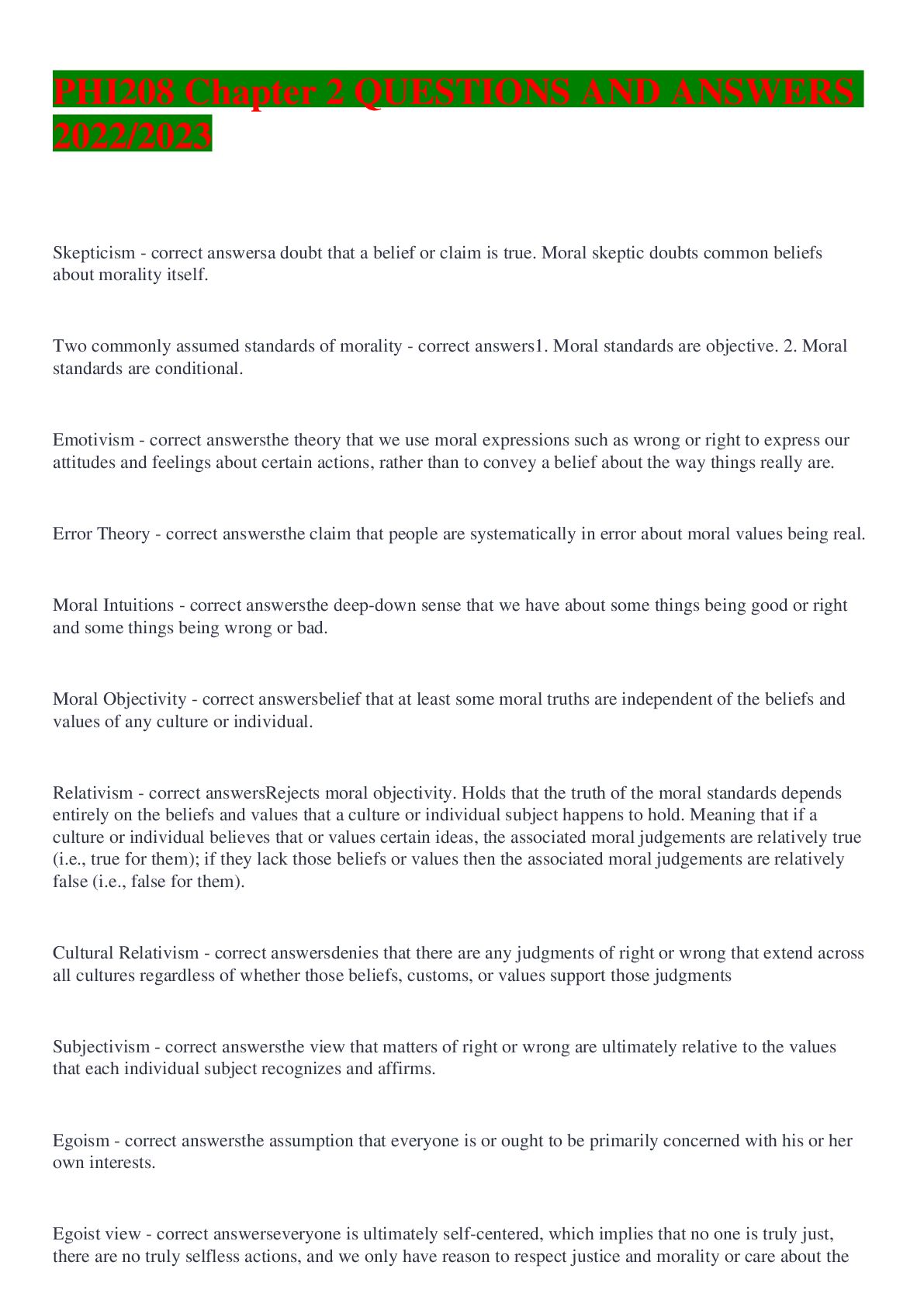
Buy this document to get the full access instantly
Instant Download Access after purchase
Buy NowInstant download
We Accept:

Also available in bundle (1)
Click Below to Access Bundle(s)

BUNDLE OF PHI 208 QUESTIONS AND ANSWERS 2022/2023
BUNDLE OF PHI 208 QUESTIONS AND ANSWERS 2022/2023
By FOREVERGREATIFUL2012 3 years ago
$29.5
5
Reviews( 0 )
$14.00
Can't find what you want? Try our AI powered Search
Document information
Connected school, study & course
About the document
Uploaded On
Nov 17, 2022
Number of pages
2
Written in
All
Additional information
This document has been written for:
Uploaded
Nov 17, 2022
Downloads
0
Views
212

